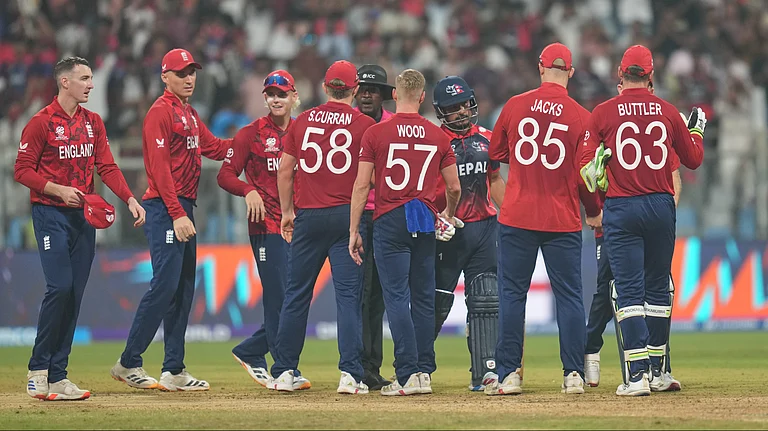Last week India lost one of her great sons. The world of music, specially Indian classical music, will take a long time to recover from the shock of Ustad Allah Rakhas sudden demise. For me, its a double loss. I still cant believe Abbaji is no more, neither can I believe that the next time I enter his house, he wont be there with his brilliant, welcoming smile.
Its more than two decades now since I met Abbaji. My first impression of him was that of a strict disciplinarian, an authoritative guru. That he was, but he was also very kind-hearted and unbelievably considerate. Irrespective of the age, religion or the socio-economic background of his students, he showered his love on all alike. He would always enquire about the arrangements for lodging and boarding for all those who came from other parts of the country. In fact, it was a common feature to have at least two to three students staying with the family till they could find proper accommodation.
Once, I asked him how Zakir bhai was as a student. His face lit up. He was obviously proud to have such a brilliant disciple who was also his son. He gave his characteristic, bright smile and said that there were very few who had the equal proportion of dedication, talent and desire to learn like Zakir bhai. Then he narrated an incident-when still a boy of seven years, during one of the teaching sessions, Zakir bhai could not get a piece right. Exasperated, Abbaji slapped him. Without stopping for a moment, the little student tried again and got it right this time. Abbajis anger vanished and to make up for the slap, he hugged his son, who burst into tears. Abbaji looked at me with moist eyes and said: "Jab maara tab nahin roya, jab gale lagaaya, tab roya".
There are innumerable memories. Last November we went to Bangalore together for a special felicitation. As he got into the plane, I realised he was feeling cold and it would be difficult for him to walk as it was very windy. I asked for a wheelchair. He sat down. But the moment we entered the lounge, he sprang up to his feet and said: "I dont need this now, I am comfortable, dont worry about me." So typical of Abbaji to always think of others first. Another interesting thing I always noticed was that he always travelled very light. Only the minimum required would find its way into his simple, smart little bag. When I pointed that out at the airport, he said: "Why carry excess baggage? It creates problems for you and for others." When I look back, I feel this was exactly how he felt about human emotions too. He didnt believe in keeping a grudge against anyone. To all his fans and students, he was Abbaji. Strict and demanding when it came to discipline, but indulgent and affectionate when one needed encouragement.
A great fan of cricket, he was a delight to watch when glued to the TV screen each time the Indian team played. Every six and four of the opposite team was underlined with his "Lahaul bila" and all the good strokes and catches of our team elicited a dazzling smile.
Abbajis contribution and achievements in the world of music dont need any listing down. They are a precious part of our cultural heritage. A musician, a composer, a music director of Hindi cinema, a programming officer with the air, a soloist and accompanist beyond compare, an unequalled guru, a creative genius and above everything else, a great human being. Abbaji will always be alive in our memories and in our music.
Born on April 29, 1919, Ustad Allah Rakha belonged to a family of soldiers and farmers. It was perhaps this ancestry which led to a life-long love of travelling. In his youth, he was was very fond of a theatre company and particularly the tabla player there. Usually after the show, he would sit by the river for hours on end and, so goes the story, would see a face in the water. A voice from within always prompted him to go and meet this man. When, as an 11-year-old, he ran away to Lahore, he finally met the man. It was none other than Ustad Kader Bux, the great tabla player who became his guru.
A not-too-well known fact about Abbajis life is that he also learnt vocal from Ustad Ashiq Ali Khan of Patiala. As a tabla player, Abbajis main contribution lay in popularising the layakari (the different combinations and permutations in a rhythmic phrase) and its spontaneous interpretations. The mastery needed to achieve that, obviously, was all his own. Ustad Allah Rakha belonged to the Punjab gharana, one of the oldest gharanas of tabla known for its speed and dexterity. Khula Bag, or the style peculiar to this school, stresses strong, open, powerful sound with a frequent use of the thaap or flat palm. Though the Punjab gharana is famous for its complex patterns and speed, Abbaji remains an inspirational figure for all gharanas and schools across the globe.
Abbaji, among many felicitations, was awarded the Padma Shri and also the Sangeet Natak Akademi award. Desirous of helping those with a passion for tabla, he founded the Ustad Allah Rakha Institute of Music in 85 in Bombay. Predictably, come rain or sun, he was always there to help and teach his students. At the age of 11 Abbaji ran away from his house to enter the world of music. Seventy years later he has done it again. He has left his family and friends behind to enter the world of permanent bliss. If there is any heaven, Im sure Abbaji must have received a grand welcome there...after all how many souls are so pure, so loving, so perfect!
(The writer is the director of Banyan Tree, a Mumbai-based cultural organisation, and a personal friend of the late Ustad.)


























